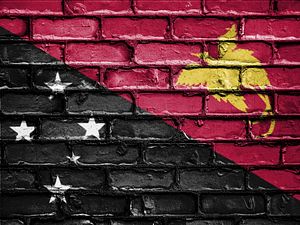Australian Prime Minister Scott Morrison and his Papua New Guinean counterpart, Peter O’Neill, recently “signed off” on a bilateral arrangement committing both countries to building a joint naval base on PNG’s northerly island province of Manus. Australia’s upgrade of its security cooperation with PNG advances Australia’s interest in counteracting China’s growing influence in the Pacific Islands.
Australia, a traditional ally of the United States is frantically going about trying to deter the expanding influence of China in the South Pacific. As a former colonial administrator of PNG, the focus of Australia’s bilateral relations with PNG has always been rationalized on the notion that a stable PNG is vital to Australian strategic interest. A delicate approach respecting PNG’s sovereignty underpinned previous dealings. In the current context, this latest move to build a naval facility on PNG territory is unprecedented. It is the first time an Australian naval base has been constructed on a territory of sovereign state in the Pacific Islands. Australian strategies will challenge the neutrality and political legitimacy of small states caught up in the geopolitical tussle for influence. The agreement to build a joint naval base on PNG territory is seriously flawed.
The announcement comes as PNG prepares to host the Asia Pacific Economic Cooperation (APEC) Leaders Meet later this month. The decision by PNG to be party to a joint naval base agreement has not been debated in PNG’s parliament and PNG’s civil society has not been engaged in the discussions. In previous arrangements, where Australia-PNG cooperation were initiated beginning with the 2004 Enhanced Cooperation Program and the 2013 Manus asylum-seekers program of offshore process of illegal immigrants into Australia, the Courts in PNG belatedly ruled these bilateral agreements were unconstitutional. Australian engagements with PNG have an unsavory history of not conforming to legitimate process of debate, capitalizing on the weak political system in PNG.
PNG is presently undergoing financial woes with its dwindling foreign reserves and a national budget that is at an all-time high deficit levels. One can understand why the Prime Minister of PNG is readily committing to the joint naval base. Much-needed financial resources from Australia may be part of the incentives for Peter O’Neill’s decision-making.
But PNG’s national security is not of a military nature. PNG’s national security is predominantly in areas of surveillance capabilities of fisheries resources and border protection targeting illicit activities of transnational non-states actors.
The Manus joint naval base agreement is expressed militarization. The danger with the Manus naval base is that an innocuous defensive posture by Australia and PNG can easily be misread as offensive in nature to China or any other neighboring state. Technically, PNG is taking sides in the geopolitical rivalry between China and the United States and its allies. By availing its territory for the projection of military capabilities against another state, PNG is backsliding on its commitment to non-aligned principles and long-standing foreign policy orientation affirming universalism. After PNG gained independence in 1975, it pronounced as its foreign policy orientation the principles of “friends to all, enemies to none.” This ideal was paramount for PNG so it could navigate the bipolarity of the Cold War. Ever since, PNG has conformed to this basic tenet in its international relations.
PNG is a member of the Non-Aligned Movement (NAM) group of states, after it joined in 1993. The NAM was created in 1961 and it is explicit about its role in global politics. The NAM seeks to “create an independent path in world politics that would not result in member States becoming pawns in the struggles between the major powers.” PNG must go out of its way to reinforce these principles in its dealings with these various big powers.
Peter O’Neill’s commitment of PNG to the naval base agreement with Australia is open-ended military alliance against a perceived belligerent power. For small states which find themselves caught up in great power rivalry, the dilemma of entrapment in unwarranted military alliances is real. It diminishes PNG’s neutrality and capacity to seek future cooperation from the states it is allying against.
For the foreseeable future, PNG will continue to need Chinese cooperation on issue areas such as the banning of exported illegal logs into China. China is a permanent member of the UN Security Council, possessive of veto powers. Taking sides in a geopolitical rivalry, especially against China is detrimental. China has previously used its veto powers in the UN Security Council to stall humanitarian intervention in the 1998-2003 Solomon Islands civil unrest because of Solomon Islands diplomatic recognition of Taiwan. Staying clear of the geopolitical rivalry between the United States and its allies and China is a sure way of maintaining flexibility and independence in PNG’s multilateral engagements. PNG must not take sides in exacerbating present misunderstandings in the Pacific Islands.
Patrick Kaiku is a teaching fellow in the Political Science Department at the University of Papua New Guinea. He is a graduate from the University of Hawai’i at Manoa.

































